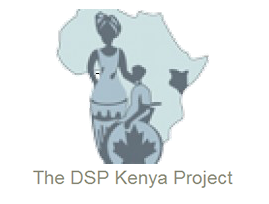Why was this resource created?
Treatment advances have improved survival for people living with HIV who have access to care. HIV disease is now considered chronic and cyclical, with periods of wellness and illness. 2,3,4
As many people with HIV in Sub-Saharan Africa are now living longer, they face a number of health challenges related to HIV, concurrent health conditions, and side effects of treatment.
A 2004 survey in Canada was the first to document the high prevalence of disablement among people living with HIV. At least 80% of respondents experienced a minimum of one impairment (e.g. fatigue, pain, memory problems), activity limitation (e.g. difficulty carrying out daily activities) or social participation restriction (e.g. employment, financial independence) in the previous month.5
More recently, research has been conducted in Sub-Saharan Africa that illustrates the various forms of disablement that may be experienced by adults and children living with HIV.6,7,8,9
These findings highlight the role for rehabilitation to help people meet the challenges of living and aging with HIV.
2Hanass-Hancock J, Regondi I, van Egeraat L, Nixon S. HIV-related disability in HIV hyper-endemic countries: a scoping review. World Journal of AIDS. 2013; 3:257-279.
3Nixon SA, Forman L, Hanass-Hancock J, Mac-Seing M, Munyanukato N, Myezwa H, Retis C. Rehabilitation: A crucial component in the future of HIV care and support. South African Journal of HIV Medicine 2011; 12(2):12-17.
4Nixon SA, Hanass-Hancock J, Whiteside A, Barnett AS. The increasing chronicity of HIV in Sub-Saharan Africa: Re-thinking “HIV as a long-wave event” in the era of widespread access to ART. Globalization and Health. 2011; 7(41).
5Rusch M, Nixon S, Schilder A, Braitstein P, Chan K, Hogg RS. Impairments, activity limitations and participation restrictions: prevalence and associations among persons living with HIV/AIDS in British Columbia. Health Qual Life Outcomes. 2004 Sep 6;2:46. PubMed PMID: 15350202; PubMed Central PMCID: PMC519026. http://www.ncbi.nlm.nih.gov/pubmed/15350202.
6Hanass-Hancock J, Regondi I, van Egeraat L, Nixon S. HIV-related disability in HIV hyper-endemic countries: a scoping review. World Journal of AIDS. 2013; 3:257-279.
7Myezwa H, Stewart A, Musenge E, Nesara P. Assessment of HIV-positive in-patients using the International Classification of Functioning, Disability and Health (ICF), at Chris Hani Baragwanath Hospital, Johannesburg. AJAR. 2009; 8(1):93-106. http://www.ajol.info/index.php/ajar/article/view/42943.
8Myezwa H, Buchalla C, Jelsma J, Stewart A. HIV/AIDS: use of the ICF in Brazil and South Africa – comparative data from four cross-sectional studies. Physiotherapy. 2011;97(1):17-25.
9Van As M, Myezwa H, Stewart A, Maleka D, Musenge E. The International Classification of Function Disability and Health (ICF) in adults visiting the HIV outpatient clinic at a regional hospital in Johannesburg, South Africa. AIDS Care. 2009;21(1):50-8. PubMed PMID: 19085220. http://www.ncbi.nlm.nih.gov/pubmed/19085220.

 Previous Page
Previous Page




